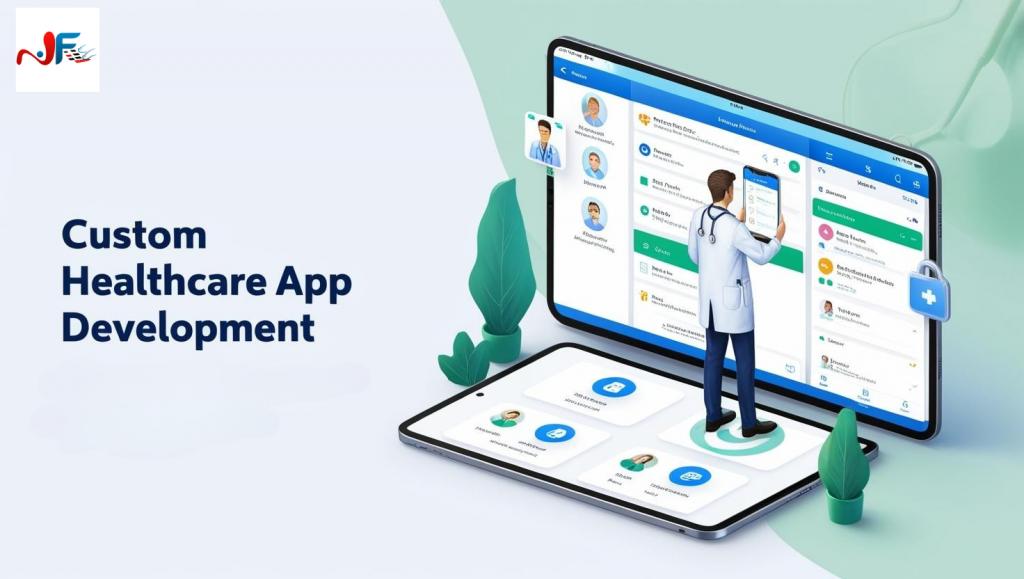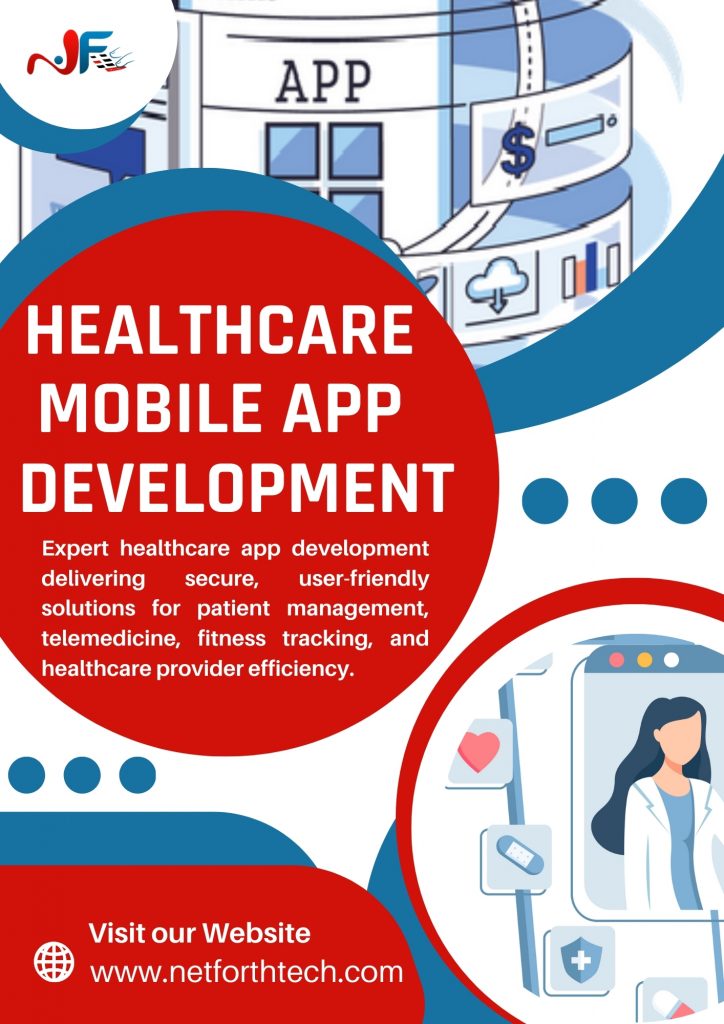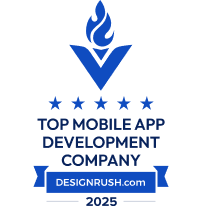Introduction
The healthcare industry has undergone a significant digital transformation, with mobile applications playing a crucial role in improving patient care and engagement. The advent of healthcare mobile apps has enabled patients to access medical services conveniently, track their health, and interact with healthcare providers more efficiently. These innovations are bridging the gap between patients and healthcare providers, making healthcare more accessible, affordable, and effective.
The Role of Healthcare Mobile Apps in Patient Care
1. Telemedicine and Virtual Consultations
Telemedicine apps allow patients to consult doctors remotely via video calls, chat, or voice calls. This eliminates the need for physical visits, saving time and costs for both patients and healthcare providers. Telemedicine is particularly beneficial for patients in rural areas or those with mobility challenges. These apps ensure that medical consultations are accessible anytime, reducing hospital overcrowding and improving efficiency.
2. Remote Patient Monitoring (RPM)
Remote Patient Monitoring apps enable healthcare providers to track patients’ health conditions in real-time. Patients with chronic diseases such as diabetes, hypertension, or heart conditions can use wearable devices connected to mobile apps to monitor vital signs and share data with their doctors. This real-time tracking helps in early diagnosis and timely intervention, reducing complications and hospital readmissions.
3. Medication Management and Adherence
Medication non-adherence is a major challenge in healthcare, leading to poor health outcomes and increased medical costs. Healthcare apps help patients manage their medications by sending reminders to take prescribed doses at the right time. Some apps also provide information on drug interactions, side effects, and dosage instructions, ensuring safer medication practices.
4. Electronic Health Records (EHR) and Personal Health Records (PHR)
Healthcare mobile apps facilitate seamless access to Electronic Health Records (EHR) and Personal Health Records (PHR), enabling patients and healthcare providers to retrieve medical histories, lab results, prescriptions, and treatment plans instantly. This enhances care coordination, reduces redundant tests, and improves decision-making for both patients and doctors.
5. AI-Powered Symptom Checkers and Chatbots
AI-driven healthcare apps provide symptom-checking features that help users identify potential health issues before consulting a doctor. These apps use machine learning algorithms to analyze symptoms and suggest possible conditions. Additionally, AI-powered chatbots provide instant responses to health queries, offering initial guidance and reducing unnecessary hospital visits.
6. Health and Wellness Tracking
Mobile apps integrated with wearable devices allow users to monitor their daily health metrics such as heart rate, blood pressure, sleep patterns, and physical activity levels. These insights help users take proactive measures to maintain their well-being and detect potential health issues early.
Enhancing Patient Engagement Through Mobile Apps
1. Personalized Health Experiences
Healthcare mobile apps use AI and data analytics to provide personalized health recommendations based on a patient’s medical history, lifestyle, and preferences. Personalized experiences improve patient engagement by offering tailored exercise plans, diet suggestions, and wellness tips.
2. 24/7 Access to Healthcare Services
Unlike traditional healthcare facilities with limited working hours, mobile apps provide round-the-clock access to healthcare services. Patients can schedule appointments, refill prescriptions, and consult doctors at any time, leading to increased engagement and better health outcomes.
3. Improved Doctor-Patient Communication
Mobile apps facilitate continuous communication between doctors and patients through chat, video calls, and secure messaging. This enhances doctor-patient relationships, allowing for better understanding, timely interventions, and improved treatment adherence.
4. Gamification and Rewards
Many healthcare apps incorporate gamification features such as health challenges, goal tracking, and rewards for achieving milestones. This motivates users to maintain a healthy lifestyle and stay engaged with their health goals.
5. Community Support and Social Engagement
Some apps offer support groups and online communities where patients with similar conditions can share experiences, advice, and encouragement. This sense of community fosters emotional support and motivation, enhancing patient engagement.

Challenges and Solutions in Healthcare Mobile App Adoption
1. Data Security and Privacy Concerns
Healthcare apps handle sensitive patient data, making security a top priority. Developers must comply with regulations such as HIPAA (Health Insurance Portability and Accountability Act) to ensure data encryption, secure authentication, and confidentiality.
2. User-Friendly Interface and Accessibility
To maximize engagement, healthcare apps should have an intuitive design and be accessible to people with disabilities. Features like voice commands, larger fonts, and multi-language support can improve usability.
3. Integration with Existing Healthcare Systems
For seamless operation, mobile apps should integrate with hospital management systems, EHRs, and insurance databases. Interoperability ensures smooth data exchange and enhances care coordination.
The Future of Healthcare Mobile Apps
The future of healthcare mobile apps is promising, with emerging technologies such as Artificial Intelligence (AI), Blockchain, and Augmented Reality (AR) set to enhance their capabilities. AI will refine diagnosis and treatment recommendations, Blockchain will ensure secure data transactions, and AR will improve medical training and remote surgeries.
Conclusion
Healthcare mobile apps are transforming patient care and engagement by providing accessible, efficient, and personalized health services. From telemedicine and remote monitoring to AI-powered chatbots and health tracking, these apps empower patients and improve healthcare outcomes. As technology continues to evolve, healthcare apps will play an even greater role in making healthcare more patient-centric, cost-effective, and efficient.






